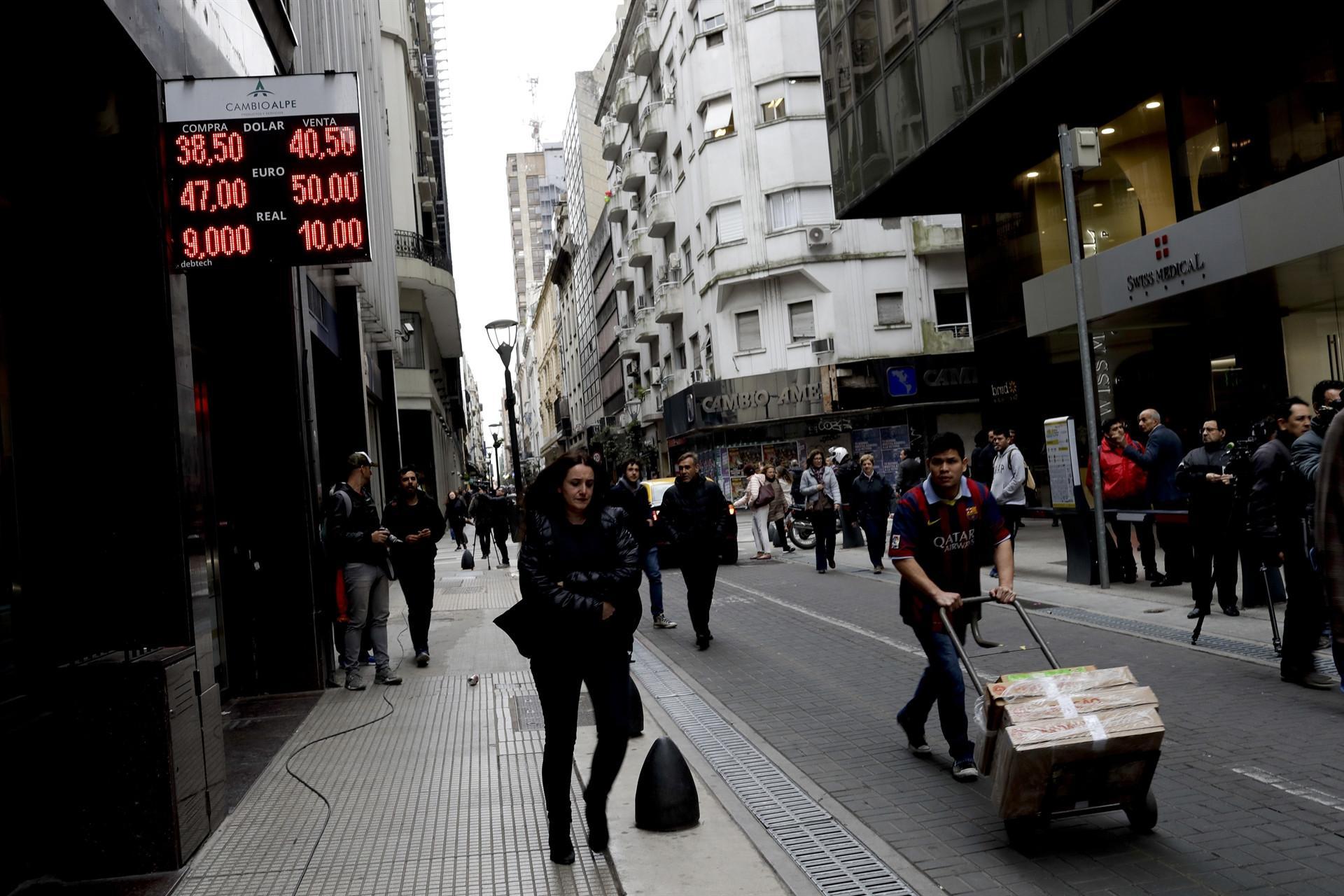
Argentina’s peso lost as much as nearly one-fifth of its value on Aug. 30 despite the central bank’s hiking its benchmark interest rate to a dizzying 60 percent as investors panicked over President Mauricio Macri’s handling of an economic crisis.
After the market close, Treasury Minister Nicolas Dujovne pledged to announce a set of new economic measures on Sept. 3, and will target a fiscal deficit for 2019 that is lower than the current target of 1.3 percent of gross domestic product in order to reduce the government’s need to go to debt markets.
Onerous borrowing costs combined with government spending cuts and a drought that crippled Argentina’s agricultural sector this year have slammed Latin America’s third-largest economy. It is expected to enter recession in the third quarter.
The political fortunes of Macri, who until recently had been expected to easily win re-election late next year, may also be waning.
He is likely to face mounting opposition from emboldened unions after promising further austerity measures following an International Monetary Fund warning on the government’s need to cut its fiscal deficit, with voters mindful of the 2002-2003 economic crisis and the burdensome cuts brought by past IMF deals.
“Rapid adjustment will be painful, recession could be deep, and political risk will spike amid dwindling confidence at home,” Fiona Mackie, regional director for Latin America and the Caribbean at the Economist Intelligence Unit, said on Twitter.
In an effort to stem a slide in the peso, the world’s worst-performing currency this year, and to curb inflation running at 31 percent, the central bank’s monetary policy committee at an emergency meeting on Aug. 30 voted unanimously to raise its benchmark rate to 60 percent from 45 percent.
The surprise move, however, failed to stabilize the peso. It finished down 13.12 percent at a record closing low of 39.25 pesos per U.S. dollar, after touching 42 pesos earlier in the day.
The market turmoil erupted early on Aug. 29 after Macri said he had reached a deal with the International Monetary Fund to accelerate disbursement of a $50 billion loan program agreed in June, in a misguided attempt to calm investor nerves.
The IMF said hours later that it was considering speeding up payments because of the financial meltdown, but that Argentina needed to adopt stronger fiscal and monetary policies.